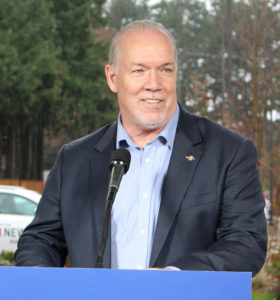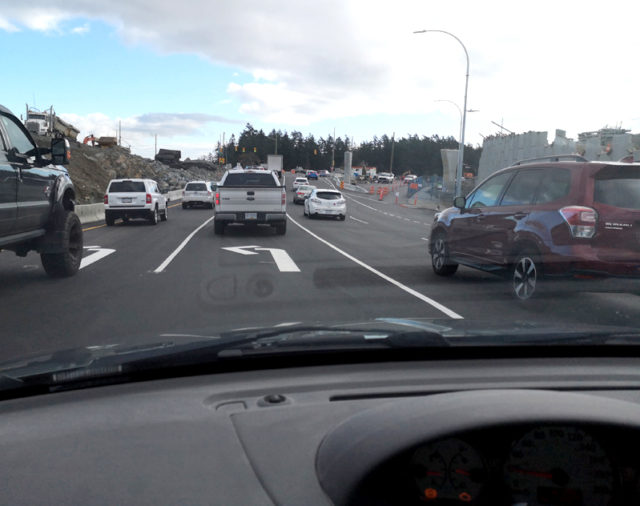Saturday, November 24 ~ BC.
by Mary P Brooke ~ West Shore Voice News
“We’re putting the travelling public first,” said Premier John Horgan with regard to ride-hailing legislation in BC.
Ride-hailing services use online-enabled platforms to connect between passengers and local drivers using their personal non-commercial vehicles.
Though somehow, the ease of using an app to call up a service provider such as through Uber or Lyft seems to have been entwined by much of the public with the idea of something like a free ride. This is business, and just anyone with a passenger vehicle that decides to make some additional revenue by providing rides is putting passengers and themselves potentially at risk.
It’s reasonable to believe that protections — about the vehicles and the drivers (including suitable insurance) would be welcomed by both drivers and riders, as well as the companies the drivers have agreements with.
“If someone wants to start or work for a ride-hailing company they should expect to meet the same standards that passenger vehicles have to meet. I think that’s a reasonable thing,” he said during questions with media in Langford on Friday.
Putting the safety of customers and riders first is the goal of standards for the drivers. BC has been getting some push back that they’re delaying the process of allowing ride-sharing in BC. Vancouver and Victoria do not yet have this service, whereas most major cities in North America do.
A committee charged with reviewing all the current legislation and recommending changes is asked to provide its report by March 31, 2019.

“We’re putting the travelling public first. If someone wants to start or work for a ride-hailing company they should expect to meet the same standards that passenger vehicles (like taxis) have to meet. I think that’s a reasonable thing,” the Premier said.
The BC Government had been criticized for what appears to be delays. But in the interest of ‘getting it right, eight laws require amendments. As well, for passenger coverage, a new form of per-kilometre insurance will need to be created by the Insurance Corporation of British Columbia (ICBC).
Later that day, Minister of Transportation and Infrastructure (MOTI) Claire Trevena issued a statement on the motion to define the terms and conditions of the regulations for ride-hailing:
“The Select Standing Committee on Crown Corporations will be authorized to examine, inquire into and make recommendations on regulations regarding app-based ride-hailing. The committee will be authorized to meet for up to three days to hear and will be able to hear from witnesses.
“I thank the members from the BC Green caucus for their work on this file and recommendations for the committee. Like all legislative committees, this will see members from all parties working together – and it is important that we all work together to keep people safe on our roads, while allowing for new, convenient transportation services to enter the market.
“This legislation is a milestone that gets ride-hailing right for British Columbia. My priority is to make sure British Columbians are safer on the roads, and together, with the committee, we will make sure we get the options British Columbians want, while making sure their rides are safe. These priorities are shared with all parties, and I look forward to receiving the recommendations of the committee.”
The ride-hailing motion states the committee shall limit its consideration to forming recommendations on the following:
- criteria to consider when establishing boundaries;
- appropriate policies to balance the supply of service with consumer demand, including the application of the Passenger Transportation Board’s current public convenience and necessity regime as it pertains to transportation network services; and
- criteria to be considered when establishing price and fare regimes that balance affordability with reasonable business rates of return for service providers.
- In addition to the powers previously conferred upon the Select Standing Committee on Crown Corporations, the committee shall be empowered to: appoint one or more sub-committees and to refer to such sub-committees any of the matters referred to the committee; sit during a period in which the House is adjourned, during the recess after prorogation until the next following session and during any sitting of the House; adjourn from place to place as may be convenient; and retain personnel as required to assist the committee.
- The committee shall report to the legislative assembly no later than March 31, 2019. The committee will then deposit the original of its reports with the clerk of the legislative assembly during a period of adjournment. Upon resumption of the sittings of the House, or at the next following session, the chair shall present all reports to the legislative assembly.



